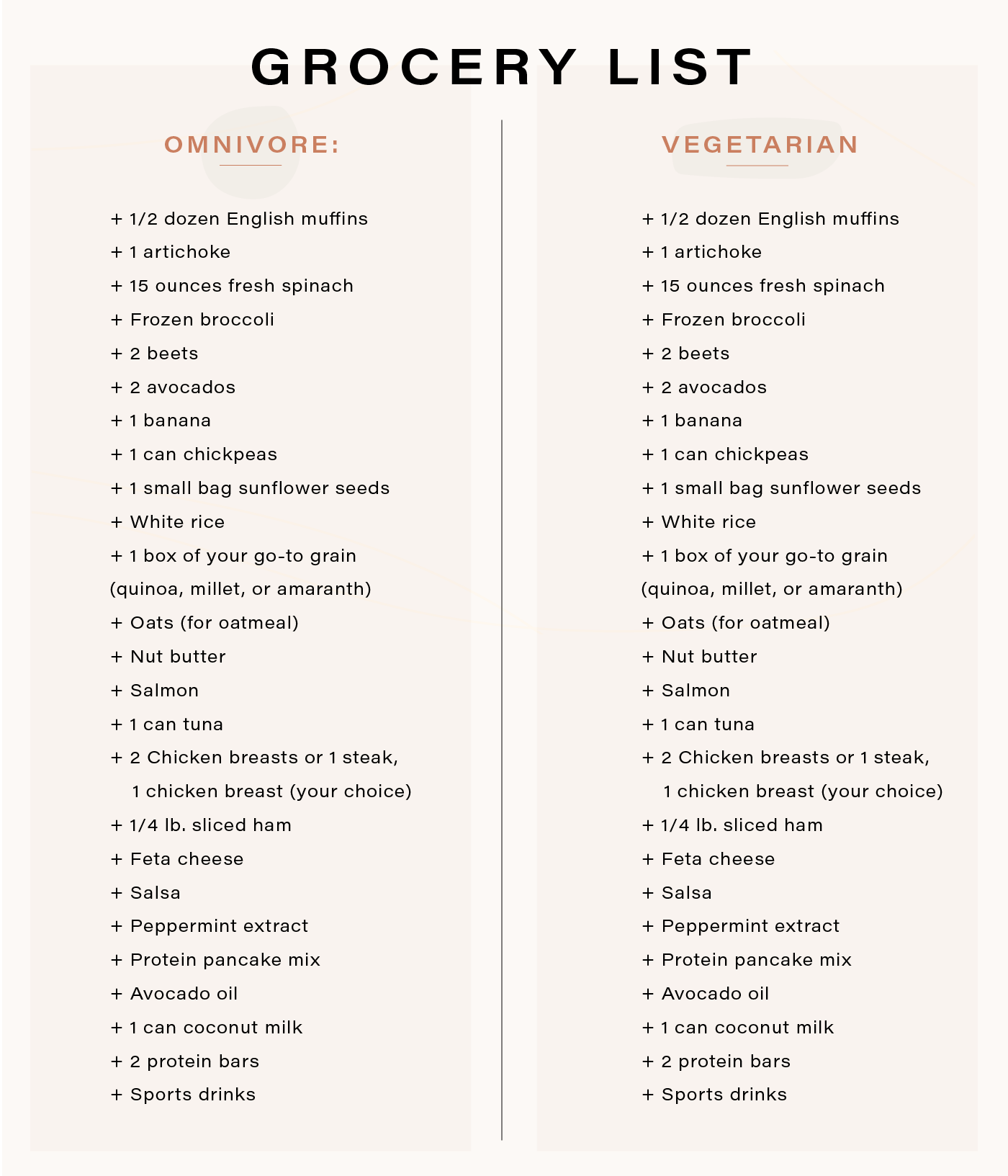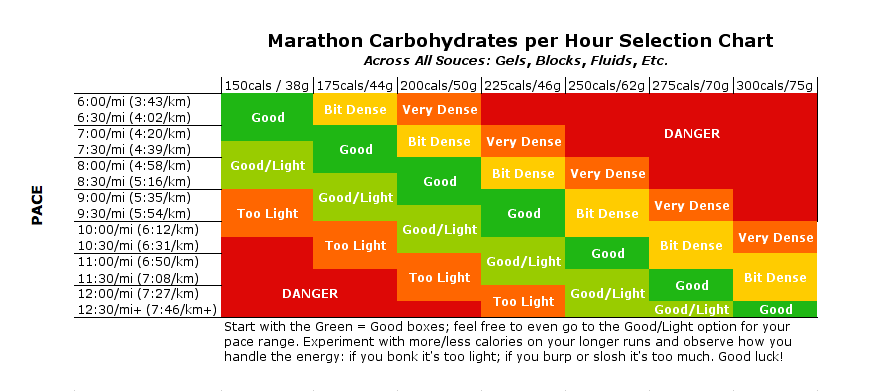No matter what the temperature is when you get up, chances are that it will increase during the race.
Marathon Training Meal Plan
You will generate a lot of heat while running. At the start of the race, you might wear old clothing that you can discard once you are warmed up. Old socks work well on the hands. Garbage bags do a fine job of providing protection in inclement weather. When you discard things, do not throw them in the path of another runner. You have a hydration and eating plan that you have practiced on your long runs. Stick with this. Do not be tempted to change plans now. Do not wait until you are thirsty to drink water— that is too late. If conditions are dramatically different than when you practiced, adjust accordingly by increasing hydration on hot days if needed.
Start slowly.
- how to burn fat off legs and stomach.
- fat burning cabbage stew.
- omega 3 capsules for weight loss.
A fast start usually spells disaster. If you feel strong you can always start running faster later in the race. You cannot go backwards once you feel tired. Enjoy the race. It is a long Finish with a smile on your face, you did it! No matter what the results are, be proud of yourself. You can learn from every race. Some tips for your post-marathon:.
Do allow your body to recover. An extreme athletic event like a marathon is incredibly stressful on the body. The body needs the rest; otherwise, problems such as injuries, fatigue, decreases in performance and immune suppression can result. Cleveland Clinic is a non-profit academic medical center. Advertising on our site helps support our mission. We do not endorse non-Cleveland Clinic products or services. Marathon Preparation Training for a marathon can be a marathon itself.
Here are tips on preparing for the big day — from how to space practice runs and adjust strength training to what's best to eat and drink. Learn how to prep the night before, the right gear to bring to the race and how to treat your body after that long run. Appointments Why do I need preparation to run a marathon? How should I prepare in the weeks before the marathon? Your last long run should take place approximately three weeks prior to the marathon. It takes that long for the training-induced muscle damage to resolve. Adding one more long run could lead to trouble.
There will be minimal gain, if any, and may cause an athlete to suffer from "dead legs" during the event. You should further cut this mileage in half the week before the race. This period may be when you wonder, "Did I train enough? You cannot make up training in the last two weeks. You will not de-condition while you are tapering off. If you put in the training, you are ready.
How to Eat When Training for a Marathon -—Nutrition for Endurance Athletes
Like you taper your work to restore your muscles, focus on sleep the week prior to the race. Your body will appreciate it. Even if nervousness stops you from getting sleep the night before the race, the extra sleep you got during the preceding week will make up for this. What to eat and drink before the marathon Make sure you are well-hydrated prior to the start of the race. Adjust your strength training Consider tapering your strength training for the last four months of training. How should I prepare the day before the marathon?
Be prepared for anything. Fill a gym bag with the essentials: Dry shirt. Extra pair of socks. Tissue you never know when the portable toilet supply will run out. Extra shoelaces. Hat or cap. Extra safety pins. Blister care products. Whatever else is a must for you. More planning tips for the day before the race Make sure you have picked up your race number. Don't spend hours on your feet at the race expo.

Despite all of the vendors, it is important to save your legs for the next day. If possible, pick up your number early.
Marathon Training 7-Day Meal Plan – Run Fast. Eat Slow.
By now you should have perfected your routine you used before your long runs. This is the same you should use the night before the race. Eat the same meal at the same times you have practiced, and make sure you are well hydrated. Plan when you will leave, how you will get to the race, and where you will park. You don't want to get lost prior to the race.
- bulletproof coffee keto weight loss.
- weight loss motivation tattoo.
- neonatal weight loss.
- How to fuel your body best during marathon training.
- Main Navigation Header.
- 1 kg weight loss in one month.
- does wrapping cling film around your help lose weight.
- How do I fuel for a Marathon?.
- How to Feed a Runner!
- tallahassee pain management and weight loss clinic.
- My Marathon Training Diet + What I Eat in a Day - A Foodie Stays Fit.
- crohns disease high fat diet.
- can walking on a treadmill lose weight.
You will have enough anxiety as it is. Plan every detail of your morning from waking up, to dressing, to getting out the door and to the start line. Many races provide water and gels or electrolyte drinks on the course. Even small differences in sugar concentration can cause stomach upset during an event. Bring your own supply that you practiced with on race day. You must have both a fuel source, usually in the form of gels or chews, and your electrolyte source with you.
As you review the map of the course, find the locations of water stops, aid stations, and portable toilets. Check the pollution levels at the course. If there will be higher levels of pollutants, plan ahead. Minimize exposure to pollutants on the way to the race, and warm up somewhere that is either extremely well ventilated, or indoors.
2. Hydrate, hydrate, hydrate
Areas with tall buildings and heavy traffic can be the worst places to warm up. When you train for a marathon, you have a training plan, right? But do you have a plan for your diet? When training for a marathon, you may be running miles a week on on top of a full-time job, full-time parenting, or both! You may be so focused on getting in the miles that you just grab whatever food is convenient and quick throughout the day.
But focusing on your marathon training diet is just as important as logging the miles. So I wanted to share some tips on fueling today! When I was training for the Boston Marathon and then again, for the race , I ate pretty simply for a few reasons:. But both are crucial to your success. Plus, most of us know too well that awful feeling on a run when your gut gets MAD and you immediately think back to what you ate the night before. And stomach aches aside, how you fuel your body contributes to how you perform. It can contribute in a positive manner or undermine your running.
I just eat things that I know will make me feel great, help my digestion, and keep me full. InsideTracker is a great tool to help you identify gaps in your nutrition as well. I also have a lesson in my running course about what to eat before, during and after a run. What a marathon runner eats will differ from person to person. We all have different preferences, mileage levels, goals, body weight, and food sensitivities or lack there of.
A good rule of thumb is to aim for 4 grams of carbohydrate for every pound of body weight. The general consensus for runners among those who study the data around marathon running is that low carb diets do NOT carb. The last one talks about the importance of timing certain macronutrients for performance and recovery. This post about the importance of carbs is also a must read. Turn on your JavaScript to view content. A simple thing to analyze is simply paying attention to any neglected food groups.
